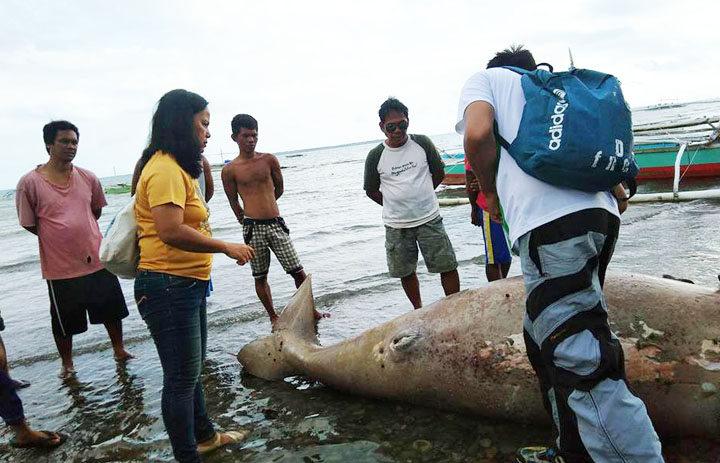
The body of a female dugong — an aquatic mammal also known as a seacow — has been found washed up in a remote village on Palawan.
The carcass, which was 10 feet long and estimated to weigh half a ton, was discovered on a sandbar by fisherman Miguelito Tunga in Barangay Babuyan, north of Puerto Princesa.
Vivian Obligar-Soriano of the City Environment and Natural Resources Office said that the finding was reported to them at about 1pm yesterday (Friday, March 2).
“It was found at 7am. It was towed by him at 9am to the shore of Purok Baybay, Anilawan. It’s a sad day, the day before the celebration of World Wildlife Day,” she said.
“It was already smelly when we got to it. We were unable to conduct the necropsy because there was no available vet. It’s possible that it died because it was stranded due to low tide in the area.
“In dugong stranding reports to us, it appears that there was none in a long time. But a while ago, they told us that last year, there was one that was found dead also but they buried it on their own and didn’t report to us.”
Marine Wildlife Watch of the Philippines (MWWP) said the dugong stands out as the largest and only sea-living mammal that grazes on seagrass.
In 2004, the MWWP said it was given “a higher level of protection” by which it was classified as “critically endangered” under Department of Environment and Natural Resources Administrative Order 2004-15.
Anyone found harming the gentle creatures may be imprisoned for up to 12 years and fined up to one million pesos.
